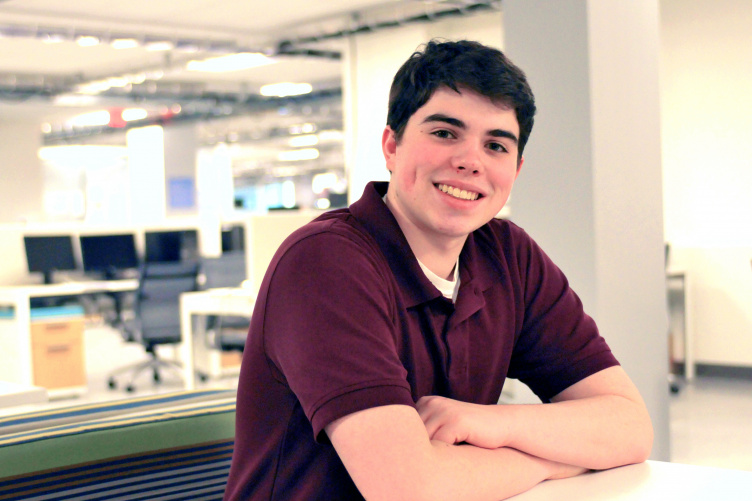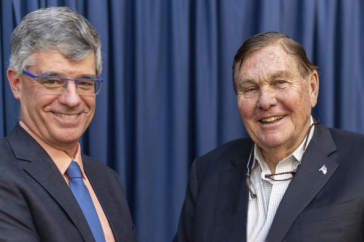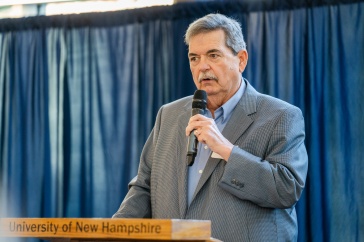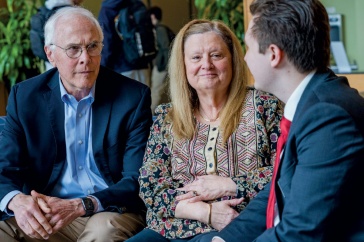
A leap second occurs when an extra second is added to the atomic clock, to make up for irregularities in the Earth’s rotation. When the Earth’s rotation is a little off one year, the world’s scientist time-keepers have those official clocks run for a 61st second. Instead of going from 11:59:59 p.m. to midnight, they go from 11:59:59 to 11:59:60 to midnight. And sometimes, that little fix confounds the technology and global digital infrastructure we all rely on for almost every aspect of our daily lives.
That’s how Griffin Leclerc explains the leap-second phenomenon. He finished up his senior year at Trinity High School in Manchester, N.H., and last summer, he was one of 10 high-schoolers chosen to take part in the donor-supported high school internship program at UNH’s Interoperability Lab.
As part of his IOL work, Griffin helped write programs that allow companies to test their devices and software to see how they would react to future leap seconds.
He had already applied to UNH by the time he was an IOL intern, but when he learned he was accepted as a member of the UNH class of 2020, it was his IOL internship he thought of first.
What Happens Inside the IOL?
Think of the UNH Interoperability Lab as our own little piece of Silicon Valley, right here in New Hampshire. It tests networking and data communications products via a membership-based, collaborative model. What that means is that companies like Apple, Cisco, 3M, Dell, HP, Panasonic and more buy into the IOL’s programs to take advantage of testing facilities, staff and resources to help in their product development. Since it first opened in 1988, the lab has grown steadily into of the industry’s premier independent proving grounds for new technologies.
“The IOL experience is a large reason why I’m coming here,” said LeClerc, who has secured a position as an IOL staffer for next year. “UNH is a place where I’ll be getting practical experience at the same time I’m taking classes that are going to be relevant to my future.”
Futures like Griffin’s are something that Barry Maskas believes are worth investing in. Maskas, a storage networks consultant at HP, coordinates HP’s donations to the IOL high school internship program, and also hosts the students for a site visit every summer.
“Getting these experiences to students early can help guide them through the next four to five years of their college careers,” Maskas says. He notes that HP’s support of the internship program also helps the technology company recruit qualified employees.
“We’re able to plant the seed that HP is something folks who plan to work in the IOL can look toward in terms of seeking employment. Our work environment is supportive of folks who have that practical experience, and a theoretical background as well.”
-
Written By:
Michelle Morrissey ’97 | UNH Magazine | michelle.morrissey@unh.edu



















































